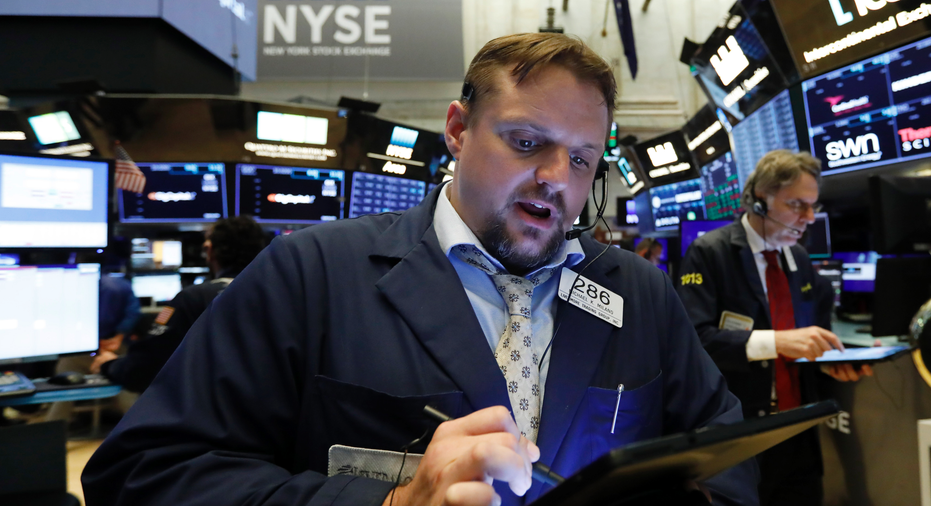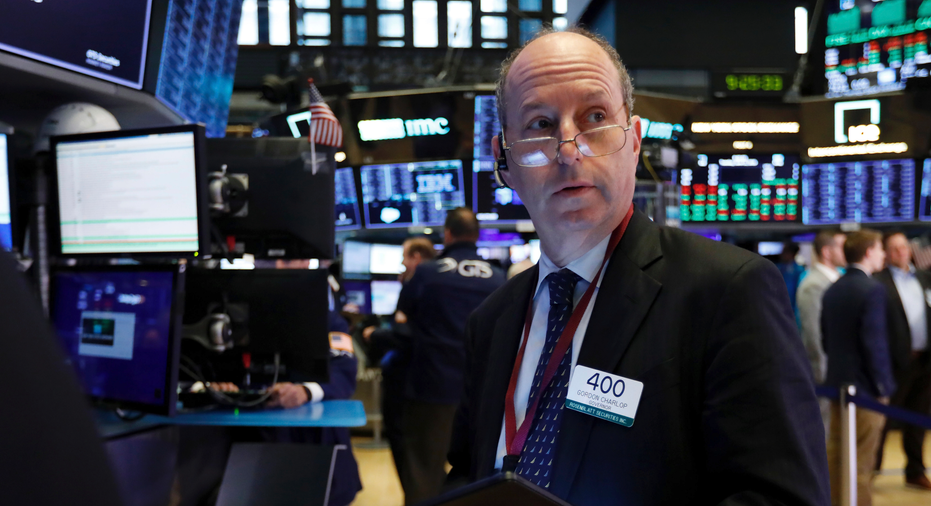Asian stocks mostly lower after retreat on Wall Street
Trader Michael Milano works on the floor of the New York Stock Exchange, Tuesday, June 11, 2019. Stocks are rising early Tuesday as Wall Street continues to thrive in June. (AP Photo/Richard Drew)
TOKYO – Shares were mostly lower in Asia on Wednesday and Hong Kong's Seng index tumbled 1.7% as thousands continued protests against proposed legislation that many city residents fear could further erode the territory's legal autonomy.
Renewed jitters over the trade war between the U.S. and China were weighing on sentiment, pulling shares slightly lower on Wall Street, where benchmarks fell for the first time in six days.
Japan's Nikkei 225 index lost 0.2% to 21,154.28 and the Kospi in Seoul shed 0.2% to 2,1087.60. The Shanghai Composite index declined 0.5% to 2,910.82. Australia's S&P ASX 200 edged 0.1% higher 6,550.40. Shares rose in Taiwan but fell in Jakarta and Thailand.
On Wall Street, defense contractors suffered steep declines and technology stocks gave up most of their early gains, taking the steam out of a morning rally. The Dow Jones Industrial Average closed with a loss of 14 points after rising as many as 186 points just after trading began.
The market had rallied for five straight days since the Federal Reserve signaled it is open to cutting interest rates if needed to stabilize the economy rattled by trade disputes. The gains had erased much of the S&P 500's 6.6% decline in May. But Tuesday, concerns that the U.S. trade spat with China could be prolonged and hurt growth in the world's two biggest economies dimmed investor enthusiasm.
Trump told reporters Tuesday he was prepared to expand 25% tariffs already imposed on $250 billion of Chinese exports to cover another $300 billion if a deal with Beijing falls through.
"It's me, right now, that's holding up the deal," Trump said in comments carried by CNBC. "And we're either going to do a great deal with China or we're not doing a deal at all."
Katie Nixon, chief investment officer at Northern Trust Wealth Management, said there is no clear resolution in sight to the trade war and investors will have to get accustomed to uncertainty hanging over the market.
"The market's going to be really sensitive to trade news," she said. "This is going to be very hard to resolve neatly and quickly."
President Donald Trump has said he plans to meet with Chinese President Xi Jinping at the Group of 20 summit late this month in Osaka, Japan. But Trump reiterated Tuesday that if the two can't reach an agreement on trade, he'll proceed with tariffs on $300 billion goods from China that aren't already subject to import taxes.
Defense companies were the biggest decliners in the S&P 500. The market on Monday welcomed news of a megamerger between Raytheon and United Technologies, but the stocks dropped sharply Tuesday. Raytheon lost 5.1% and United Technologies shed 4%. L3 Technologies fell 4.4% and Harris Corp. dropped 4.3%. On Monday, Trump expressed some reservations about the Raytheon-United Technologies tie-up.
Technology stocks also gave up some early gains. Adobe fell 1.6% and Advanced Micro Devices fell 2.5%. The tech sector is still up nearly 24% so far this year, the best performer among the 11 sectors in the S&P 500.
Consumer-focused stocks and internet companies were among the gainers. Facebook rose 1.9% and Verizon gained 1.2%. Walgreens rose 1.1% and Dollar Tree rose 2.7%.
The S&P 500 slipped 1.01 point, or 0.03%, to 2,885.72. The Dow fell 14.17 points, or 0.1%, to 26,048.51. The Nasdaq composite slipped 0.60 of a point to end at 7,822.57. The Russell 2000 index of small companies fell 4.45 points, or 0.3%, to 1,519.11.
The yield on the 10-year Treasury has dropped from around 2.50% in early May to 2.13% Wednesday.
In other trading, benchmark U.S. crude lost 98 cents to $52.29 per barrel in electronic trading on the New York Mercantile Exchange. It rose 1 cent to $53.27 a barrel on Tuesday. Brent crude oil, the international standard, fell $1.03 to $61.26 a barrel.
The dollar fell to 108.36 Japanese yen from 108.52 yen on Friday. The euro rose to $1.1338 from $1.1330.





















